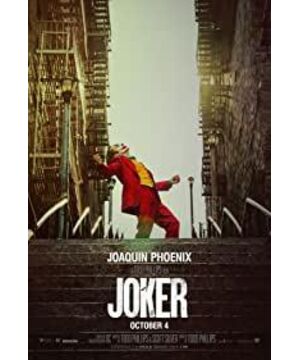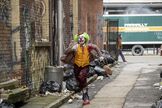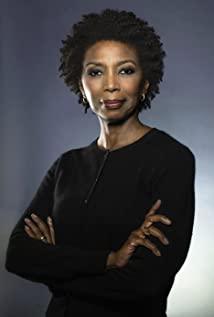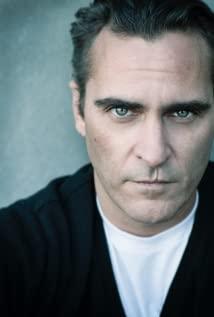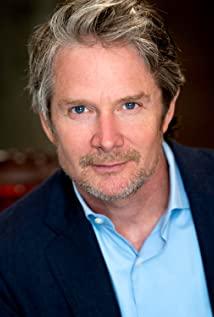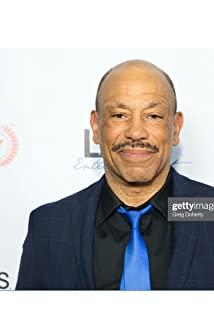First of all: The Joker is undoubtedly a good movie. It is well deserved to win the Golden Lion. Anyone who doubts that it wins because it is a superhero comic film is a stupid idiot.
There are many moving parts and details in the film, and even from the beginning, the film did not try to portray Arthur as a really good person. He actually suppressed his negative mental state by taking seven or eight different drugs, and barely maintained his basic function as a social man. This reminds me of the famous lyrics in the immortal song "The Message" by Grandmaster Flash and Melle Mel, the originator of hip-hop:
Don't push me,'cause I'm close to the edge I'm trying not to lose my head
This is obviously a metaphor. The world in the movie and our world are the same. Relying on some means to barely maintain the appearance of civilization, it has long been a brutal jungle battlefield. The performance of the male lead Joaquin dancing in the public toilet after the clown killed himself in self-defense is probably the most shocking screen performance I have seen in the new century, in a trembling, trembling, panicking, and dirty and stinking environment. During this, the Arthur in the play suddenly gained peace and sublimation, the true dark self was liberated, and all the disguise and social restraints were broken. Joaquin's performance as an actor in a scene makes people get goosebumps. After crossing the boundaries, the protagonist has become more and more confident, and the tone of the film has become more frantic. What’s interesting is that although Arthur is a sad character worthy of sympathy, his resistance in the film is actually beyond limits, uncommon sense and moral, but it allows the viewer to produce an unusual substitution. Feeling so much that when watching this movie in the theater, you can always hear the audience cheering for Arthur's bloody revenge.
A very important motif or clue in the film is "fantasy" (or hallucination). Arthur had the illusion of becoming the king of comedy, and Arthur's mother had the illusion that she was Wayne's lover. When Arthur stopped taking the medication and his mental condition began to deteriorate, he began to have more and more hallucinations, such as the most important thing about the love fantasy with the heroine Sophie. This is the last spider silk that maintains Arthur and this society, and the only resistance to prevent Arthur from becoming a clown. However, this in itself is a non-existent thing. So, did Arthur go on TV to talk to his idol Murray and get applause from the audience really happened? Probably not. (This passage is very similar to the plot of the mother in the Dream of Requiem fantasizing on a variety show) But when the fantasies are all disillusioned, everything becomes quite straightforward and relaxed. In contrast to this, when he was really ready for the last half of the second half, he was sitting in his sunny home and pretending to be answering the host on a talk show, and then pretending to commit suicide on TV. At this time, he was very Knowing that this is just a "hypothesis", not an illusion, he is conceiving a perfect laugh. (Of course he quickly gave up this idea) (It is also worth noting that this paragraph is a very straightforward tribute to the king of comedy Martin Sicoses.) If you extend the association, when human beings gather into a society, it is also There will be many beautiful fantasies. After all fantasies are shattered, everything becomes straightforward. White supremacy, xenophobia, and social antagonism are all undisguised. Isn't this the US that Trump was elected?
Of course, after the movie was released, it was criticized in many ways, saying that it praised violence, promoted populism, and so on. I don’t agree with criticizing it for preaching violence, because essentially all Hollywood movies are preaching violence, and there is no need to pull this one out to be a model. There are many masterpieces criticized for promoting violence in history, such as "A Clockwork Orange" and "Taxi Driver". But this does not hinder their own artistic value. Speaking of advocating populism, I understand this concern very well. At the end of the film, it can be said that the populist mob's carnival is described in the most direct way. This is quite an uncomfortable or worrying scene. But one of the values of movies is to portray the real world around them, not to beautify and preach. The reality is that our current world is a populist world. This is especially true if you live in the United States, and other corners of the world are not much better. But the irony about populism is that everyone feels that only oneself is the "people", and the people have the moral commanding heights. For example, in the United States, both the left and the right feel that they are truly the only people, and they all believe that the other party is a villain, and if possible they must destroy it without hesitation. This completely opposed violent posture and the end of the movie are How similar.
If you think a movie is dangerous, then you are overestimating the realistic effects that works of art can produce. Art can't actually be the flame that ignites wildfires. If the sky full of fire is really ignited by a work of art, it may only be that the fire has been burning for a long time in a place invisible to everyone.
Just like the movie Joker, it’s difficult to make a simple judgment on whether the director’s original intention is to mirror reality or to promote populism, and the motivation is actually not important. What’s important is that we have been living in the tyrannical world of clowns for a long time. . The movie will eventually end, with the end subtitled, what about reality?
These violent delights have violent ends
(PS: The sentence in the title is quoted from Billy Joel's song of the same name)
View more about Joker reviews


